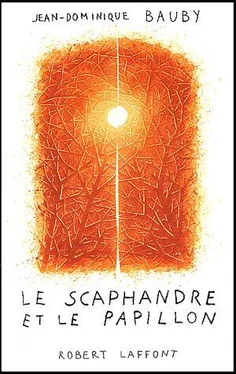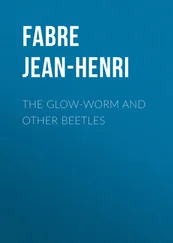The next day, after having crossed a mountain pass on the Tour de France route whose incline struck me as exhausting even by car, we rolled into Lourdes. The heat was suffocating. Joséphine was driving; I sat beside her. And Trail of the Snake , swollen and dog-eared, was relegated to the backseat. I had not dared lay a finger on it since morning, Joséphine having decided that my passion for the exotic saga masked a lack of interest in her. It was the height of the pilgrimage season, and the city was jam-packed. Still, I undertook a systematic hunt for a hotel room, only to encounter—depending on the caliber of the hotel—dismissive shrugs or murmurs of “We're really sorry.” Sweat had glued my shirt to my ribs, and the prospect of a fresh quarrel was looming by the time the receptionist at the Hôtel d'Angleterre—or d'Espagne, or des Balkans, or whatever—informed us of a cancellation, in the portentous tones of a lawyer announcing to a group of heirs the unexpected demise of a rich uncle. Yes, they had a vacancy. I refrained from saying “It's a miracle,” for instinct told me that in Lourdes you did not joke about such things. The elevator, designed to accommodate stretchers, was vast, and in the shower ten minutes later, I realized that our bathroom was also equipped for the handicapped.
While Joséphine took her turn in the bathroom, I pounced, clad only in a towel, on that supreme oasis of the thirsty: the minibar. First I downed a half-bottle of mineral water at one swallow. Divine bottle, never will I forget the touch of your glass neck on my parched lips! Then I poured a glass of champagne for Joséphine and a gin and tonic for myself. Having thus performed my barman duties, I was furtively considering a strategic withdrawal to the adventures of Charles Sobraj. But instead of the hoped-for sedative effect, the champagne restored all Joséphine's tourist zeal. “I want to see the Madonna,” she said, jumping up with her feet together, like François Mauriac in a famous photo.
So off we went, under a heavy, threatening sky, to see the holy site. We passed an unbroken column of wheelchairs led by volunteers who were clearly experienced at shepherding paraplegics. “Everyone into the basilica if it rains!” trumpeted the nun leading the procession, her headgear whipped by the wind, her rosary clasped firmly in her hand. I surreptitiously studied these invalids, their twisted hands, their closed faces, these small parcels of life hunched in upon themselves. One of them caught my eye, and I ventured a smile. He responded by sticking out his tongue, and I felt myself blush stupidly scarlet, as if caught out in some crime. Meanwhile, Joséphine, in pink sneakers, pink jeans, and pink sweatshirt, strode delightedly ahead through the midst of a somber mass (every French priest who still dressed like a priest seemed to have turned up for the occasion). Joséphine was nearly ecstatic when the chorus of robes took up the words “Appear to us, Madonna, we beg you on our knees,” the chant of her childhood years. So fervent was the atmosphere that a casual observer might have thought himself outside Parc des Princes during a European Cup match.
A queue half a mile long, chanting Ave Marias, wound across the broad esplanade in front of the entrance to the grotto. I had never seen such a queue, except perhaps outside Lenin's tomb in Moscow.
“Listen, there's no way I'm going to wait in this!”
“Pity,” Joséphine snapped. “It would do a sinner like you a lot of good!”
“Not at all. It could even be dangerous. What if someone in perfect health happened to be here when the Madonna appeared? One miracle, and he'd end up paralyzed.”
A dozen heads turned to see who could have uttered these disrespectful words. “Idiot,” muttered Joséphine. Then a rain shower diverted attention from me. At the very first drops, we witnessed the spontaneous generation of a forest of umbrellas, and the smell of hot dust floated in the air.
We were borne forward into the underground Basilica of St. Pius X, a gigantic prayer barn where Mass is celebrated from 6:00 a.m. to midnight, with a change of priest every two or three services. I had read in the guidebook that the concrete nave could accommodate several jumbo jets. I followed Joséphine to a bay with empty seats beneath one of the countless echoing loudspeakers that transmitted the ceremony. “Glory be to God in the highest…in the highest…in the highest…” At the elevation of the Host, the man next to me, a well-prepared pilgrim, pulled racegoer's binoculars from his backpack to watch the proceedings. Other believers had makeshift periscopes of the kind you see at parades. Joséphine's father had often told me how he started out in life selling these kinds of gadgets outside metro stations. This did not prevent him from becoming a giant of broadcasting. Now he made use of his barker's skills to describe royal weddings, earthquakes, and prizefights for his audience. Outside, it had stopped raining. The air was cooler. “Shopping,” said Joséphine. Anticipating this eventuality, I had already marked out the main thoroughfare, in which souvenir shops jostled one another as intimately as in an Oriental bazaar, offering the most extravagant smorgasbord of devotional objects.
Joséphine was a collector: old perfume bottles, rustic canvases complete with cattle (singly or in herds), plates of make-believe food of the kind that substitute for menus in Tokyo restaurant windows. In short, during her frequent travels she bought everything unspeakably kitsch she could lay her hands on. In Lourdes, it was love at first sight. There she sat in the window of the fourth shop on the left, surrounded by a jumble of religious medals, Swiss cuckoo clocks, decorated cheese platters, and—apparently waiting just for Joséphine—an adorable stucco bust haloed with winking bulbs, like a Christmas tree decoration.
“There's my Madonna!” Joséphine exulted.
“It's my present,” I said at once, with no inkling of the exorbitant sum the shopkeeper would soon extort from me (alleging that it was one of a kind). That evening, in our hotel room, we celebrated our acquisition, its flickering holy light bathing us and casting fantastic dancing shadows on the ceiling.
“Joséphine, I think we're going to have to split up when we get back to Paris.”
“Do you think I don't realize that?”
“But Jo…”
She was asleep. She had the gift of falling into instant sheltering slumber when a situation annoyed her. She could take a vacation from life for five minutes or several hours. For a while I watched the wall behind our pillows jump into and out of darkness. What demon could have induced people to line a whole room with orange fabric?
Since Joséphine was still sleeping, I cautiously dressed and left to engage in one of my favorite pastimes: night walking. It was my personal way of battling misfortune: just walking until I dropped. Out on the street, Dutch youths guzzled beer from big mugs. They had torn holes in garbage bags to make raincoats. Stout bars blocked the way to the grotto, but at intervals I saw the glow of hundreds of guttering candles. Much later, my wanderings brought me back to the street with the souvenir stores. In the fourth window, an identical Mary had taken the place of ours. Then I turned back to the hotel; from very far away I saw the window of our room twinkling in the gloom. I climbed the stairs, careful not to disturb the night watchman's dreams. Trail of the Snake sat on my pillow like a jewel in its setting. “Well, well,” I murmured. “Charles Sobraj! I'd forgotten all about him.”
I recognized Joséphine's writing. A huge “I” was scrawled across page 168. It was the start of a message that took up two whole chapters of the book and left them totally unreadable.
Читать дальше












